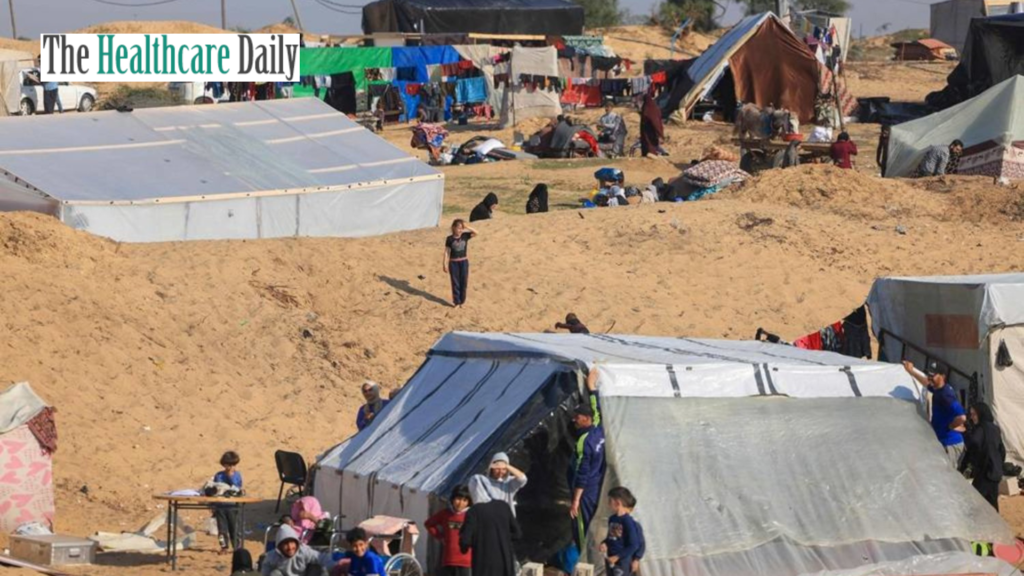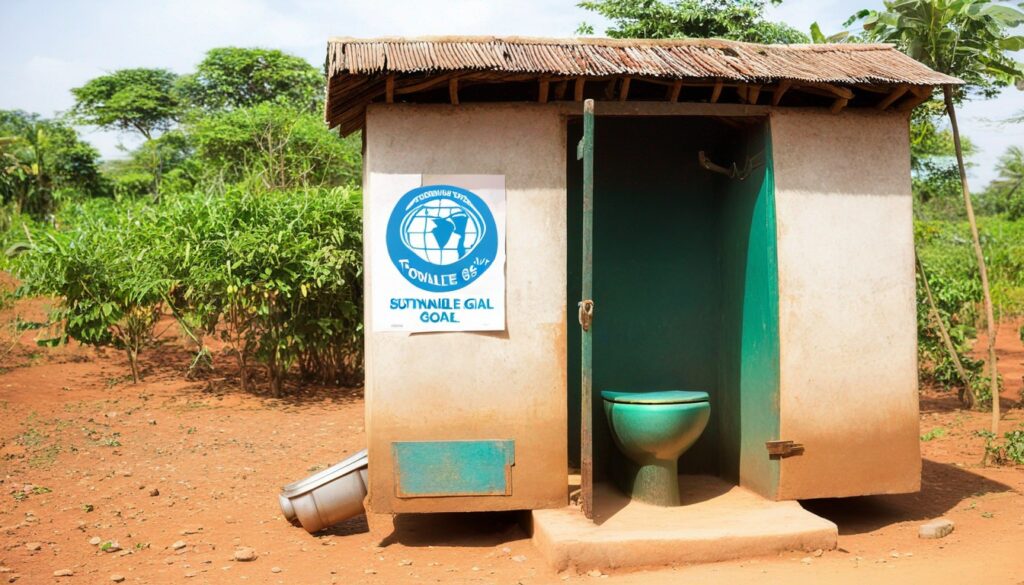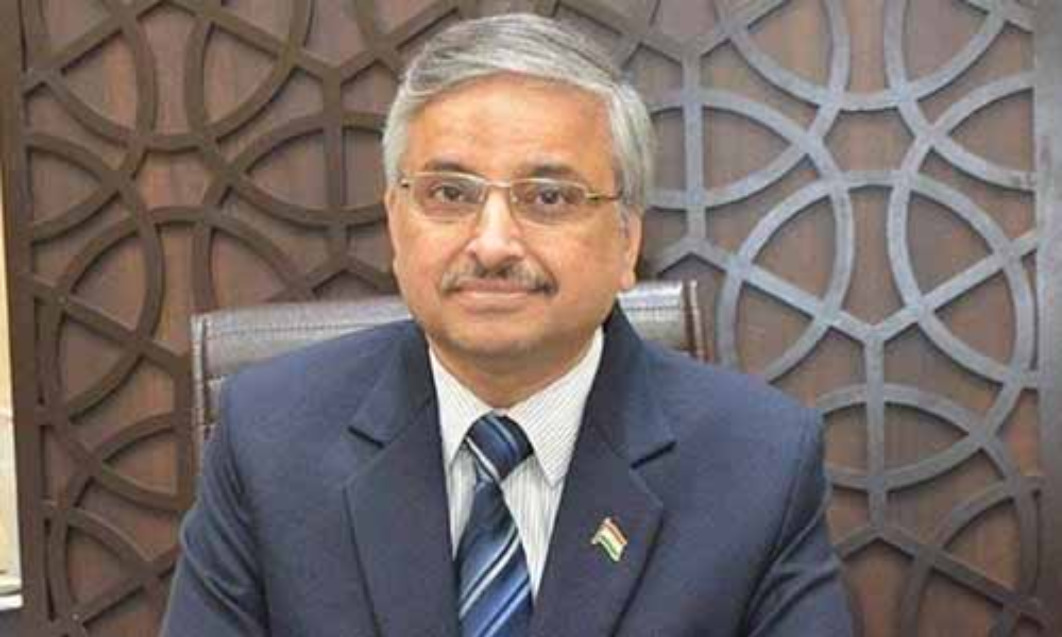The World Health Organization’s executive board is set to convene a rare emergency session on December 10th to address the escalating health crisis in Gaza and the West Bank. This decision comes in response to a request received from 15 countries, confirmed by the WHO on Monday. Director-General Tedros Adhanom Ghebreyesus will lead the session in consultation with the Qatari chair.
The focus of the emergency session, as stated by Palestinian envoy Ibrahim Khraishi, will primarily be on Gaza, gripped by conflict between its Hamas rulers and Israel. Additionally, discussions will encompass the assaults on the healthcare infrastructure in the Israeli-occupied West Bank.
“We want to empower the WHO and call for the Israeli side not to target the medical sector. We want to allow for fresh medical supplies,” Khraishi emphasized, revealing plans of a motion being drafted by his diplomatic mission for review by the board. He proposed the idea of deploying additional doctors from various countries, citing considerable offers of support.
Despite not being a member state but rather an observer in the WHO, the “Occupied Palestinian Territory” wields influence within the organization through its supporters. However, Israel criticized the session, alleging biased attention and double standards towards Israel in the international arena.
The dire situation in Gaza’s healthcare facilities was highlighted, with only a fraction operational due to Israeli bombings and fuel shortages. The facilities still functioning are overwhelmed by an influx of new casualties.
According to a WHO database, there have been 427 attacks on healthcare facilities in Palestinian territories since the cross-border attack initiated by Hamas on October 7th, followed by Israel’s retaliatory actions, though responsibility for these attacks remains unspecified.
Israel has accused Hamas of using civilians as shields by placing command centers and weapons in hospitals and civilian buildings. As renewed fighting ensued after a week-long truce collapse, Israel pledged to facilitate humanitarian aid to Gaza’s civilians.
The WHO has warned of potential disease outbreaks, foreseeing a higher toll from diseases than from bombardments in Gaza. Cases of diarrhoea among children have surged to about 100 times the normal levels.
As per the UN humanitarian agency OCHA, an estimated 80% of Gaza’s 2.3 million people have been displaced from their homes.
The WHO’s governing board, consisting of 34 members, customarily convenes each January to set the agenda for its annual assembly. Membership is divided among regional groups, with seat holders including the United States, Qatar, Senegal, Australia, and China.
 source: Thehealthcaredaily
source: Thehealthcaredaily
Table of Contents
Toggle
- WHO – The Saviors!
- Israel-Hamas Conflict
- What is Hamas?
WHO – The Saviors!
The World Health Organization (WHO) is a specialized United Nations agency dedicated to global public health. Established in 1948, WHO operates as the leading international authority on health, working across borders to combat diseases, promote health equity, and enhance healthcare systems worldwide. It sets norms and standards, provides technical support, conducts research, and coordinates responses to health emergencies, striving for accessible healthcare for all. WHO collaborates with governments, organizations, and communities, advocating for evidence-based policies and strategies to achieve better health outcomes and address health challenges across the globe.
Israel-Hamas Conflict
On October 7, Hamas led a surprise terrorist attack on Israel, killing roughly 1,400 people including at least 300 soldiers, according to the Israeli government — in their homes, at a music festival and on the streets.
In retaliation, Israel’s government vowed to destroy Hamas, the armed Palestinian group that dominates the Gaza Strip and is considered a terrorist organization by the United States, Israel and other countries.
The Israel-Gaza conflict refers to the ongoing geopolitical and military tensions between Israel and the Gaza Strip, a densely populated Palestinian territory. Rooted in a complex history of territorial disputes, security concerns, and the quest for self-determination, the conflict has seen sporadic escalations and periods of relative calm interspersed with intense confrontations.
At its core, the conflict involves issues such as control over land, resources, and the rights of Palestinians. Gaza, under Hamas rule since 2007, has experienced a blockade by Israel and Egypt, significantly restricting the movement of goods and people. This blockade, combined with political instability, economic hardship, and inadequate infrastructure, has led to humanitarian crises within Gaza.
Violence often erupts due to various triggers, including clashes at sensitive religious sites, rocket attacks by Palestinian militant groups into Israeli territory, retaliatory airstrikes by Israel, and broader political tensions. The civilian toll on both sides has been significant, with casualties, displacement, and infrastructure damage amplifying the humanitarian crisis.
Efforts towards peace, mediated by various international bodies, have had limited success. The situation remains precarious, with ongoing efforts aimed at brokering ceasefires and establishing a lasting resolution that addresses the deep-rooted grievances and aspirations of both Israelis and Palestinians
What is Hamas?
Hamas is a Palestinian political armed group that was founded in 1987. It’s a militant group that emerged as a resistance movement against Israeli occupation. It was created in 1987 as an offshoot of Egypt’s Muslim Brotherhood seeking to fulfil its agenda through violent jihad. It gained popularity as a resistance movement against Israeli occupation and Fatah. The United States has designated Hamas a terror organization since 1997. Many other countries, including Israel and most of Europe, see it the same way. Hamas believes that no part of the land of Palestine shall be compromised or conceded. Hamas rejects any alternative to the complete liberation of Palestine.





